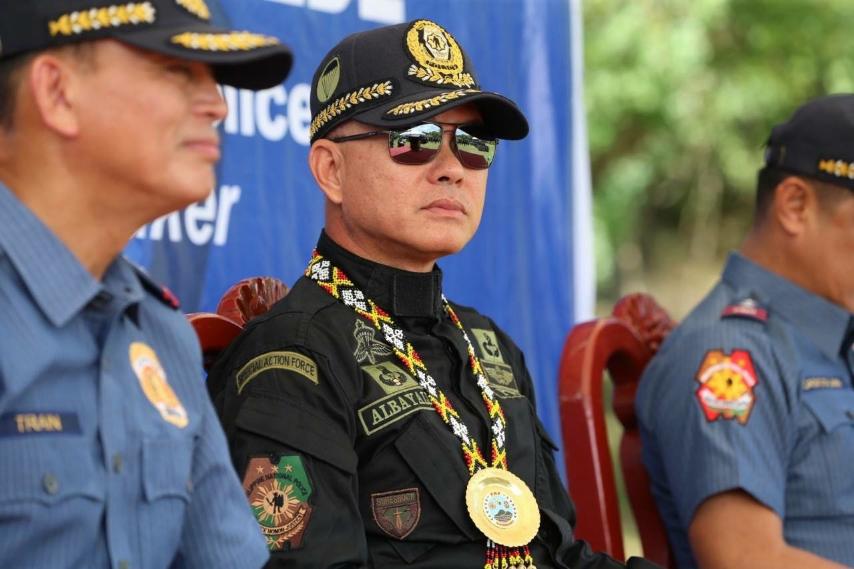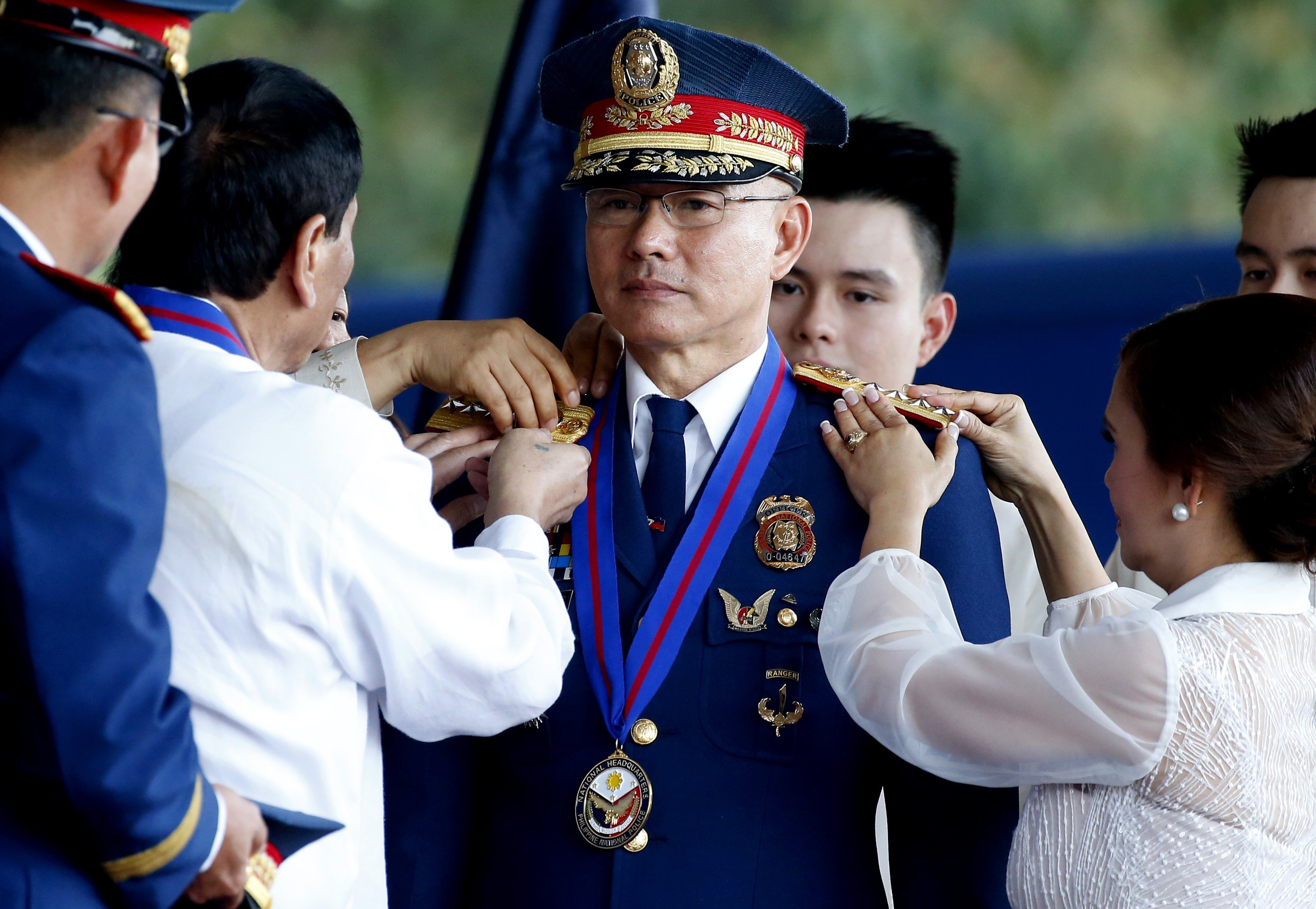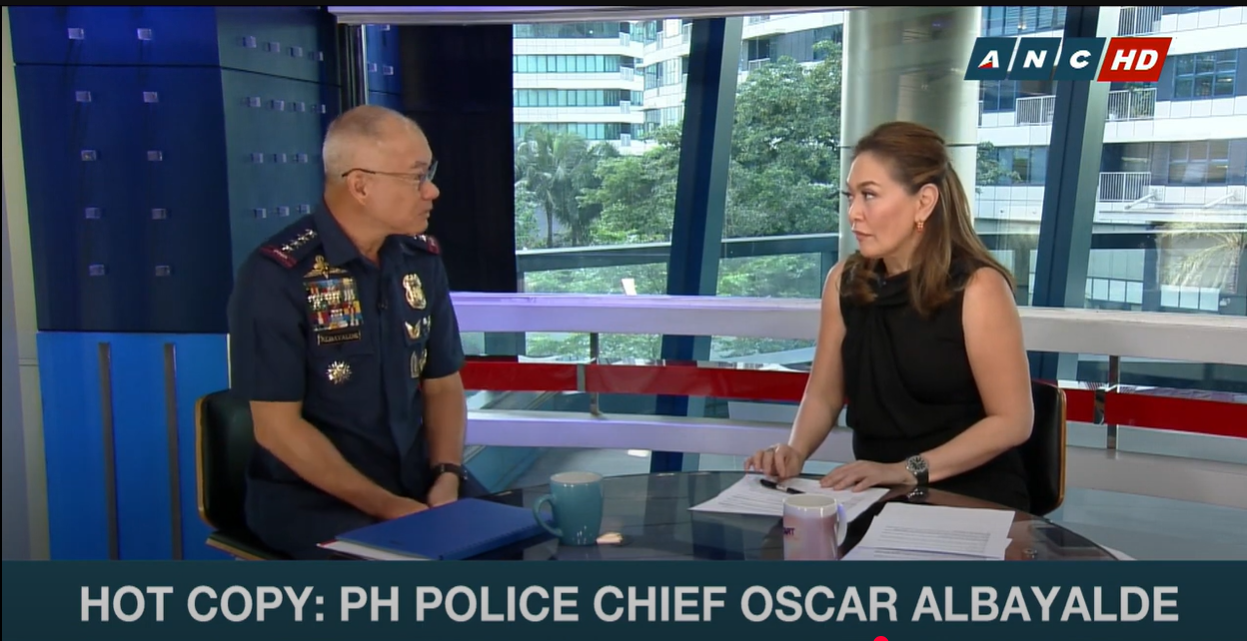
THE LIFE AND TIMES OF ALBAYALDE BEFORE AND AFTER BECOMING THE COUNTRY'S PNP CHIEF
Oscar David Albayalde was born on November 8, 1963 is known as a "dark horse" in the PNP for his strict demeanor and for being considered an outsider in President Rodrigo Duterte's inner circle, Albayalde rose to prominence through discipline, perseverance, and a reputation for firm leadership.
Born in San Fernando, Pampanga, Albayalde was the son of Philippine Air Force retired Master Sergeant, Fidel S. Albayalde and Consolacion David. Among peers and friends, he is fondly called "Odie" or "Oca." He is married to Cherrylyn Albayalde, with whom he has four children. Outside of his career in uniform, he is passionate about skydiving, scuba diving, and motorcycle riding.
He began his studies at the University of the Assumption in San Fernando from 1980 to 1982 before entering the Philippine Military Academy (PMA), inspired by his father's military background. At the PMA, Albayalde completed his Bachelor of Science degree, consistently excelling on the dean's, academic, and superintendent lists. He graduated cum laude in March 1986 as part of the Sinagtala Class of 1986, alongside his "mistah" and eventual predecessor, Ronald "Bato" dela Rosa.

Advertisement
Upon graduation, he immediately joined the elite Special Action Force (SAF), honing his skills as part of one of the most respected police units. Later, in 1995–1996, he pursued further studies and earned a Master's in Public Administration from Manuel L. Quezon University.
Before leading the National Capital Region Police Office (NCRPO), Albayalde served as Provincial Police Chief of Pampanga. In 2014, he faced dismissal after a controversial anti-drug operation in Mexico, Pampanga. However, the case filed against him was later dismissed, allowing his career to continue its trajectory.
In July 2016, Albayalde was appointed as Regional Director of the NCRPO, one of the most critical posts in the police force. Known as a strict disciplinarian, he conducted surprise inspections of precincts across Metro Manila. He earned recognition for relieving police officers caught sleeping or drinking on duty, and he made headlines for dismissing the entire Caloocan City Police Force following the controversial deaths of Kian Delos Santos and Carl Angelo Arnaiz.
Under his command, the NCRPO also handled major security responsibilities, including preparations for the 2017 ASEAN Summits and the police response during the Resorts World Manila attack in the same year. His actions during these incidents strengthened his reputation as a no-nonsense leader who demanded accountability.

Advertisement
In April 2018, following the retirement of Ronald dela Rosa, Albayalde was appointed as the Chief of the Philippine National Police. During his tenure, he spearheaded security preparations for the 2019 Philippine general elections, which came at a time of heightened tension due to a string of high-profile political killings, including the assassination of Ako Bicol Representative Rodel Batocabe.
However, his term was overshadowed by allegations involving the so-called "ninja cops" scandal. The controversy stemmed from a 2013 anti-drug operation in Pampanga, where 13 police officers were accused of profiting from seized methamphetamine. As Pampanga police chief at that time, Albayalde was accused of intervening in the dismissal case of his former subordinates. He was also alleged to have benefited from the illegal drugs, accusations that he strongly denied.
Amid mounting pressure, Albayalde resigned from his post on October 14, 2019, going on non-duty status, the first PNP chief in history to do so. His early exit, weeks before his mandatory retirement on November 8, 2019, was framed as an effort to shield the PNP from further controversy. The government maintained that his decision was voluntary and not the result of external pressure.
Oscar Albayalde's career reflects both the achievements and challenges of a life in law enforcement. From his beginnings in Pampanga, his rise through the ranks of the SAF and NCRPO, and finally as the PNP Chief, he became known as a leader who valued discipline and accountability.





